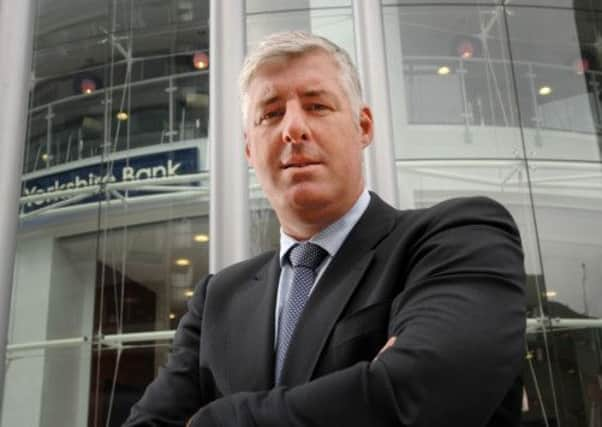Yorkshire Bank puts aside more compensation cash for victims


Parent company National Australia Bank said higher income and lower charges for bad and doubtful debts in the UK were offset by an increase in expenses in a third quarter trading update.
These were largely related to further provisions for “conduct and redress matters”, said NAB in a statement.
Advertisement
Hide AdAdvertisement
Hide AdYorkshire and Clydesdale set aside £51m for mis-selling payment protection insurance and £83m for non-PPI claims, including controversial interest rate derivatives, in the first half of its financial year.
They are among a dozen lenders taking part in a review by the City watchdog into the mis-selling of interest-rate hedging products to SMEs.
These were sold to protect against a rise in the cost of borrowing money during the boom years but left many holders dangerously exposed when interest rates fell to record lows.
In the three months to June, NAB revealed improved cash earnings in its UK commercial real estate portfolio with better loan performance and higher income.
Advertisement
Hide AdAdvertisement
Hide AdThe improved performance prompted renewed speculation about a sale of Yorkshire and Clydesdale banks, which analysts said could happen sooner rather than later.
NAB said the run-off of the portfolio continued ahead of plan with the balance declining to £4.4bn in June, down from £5bn in March.
The lender has attributed the fall to customers moving elsewhere or loans reaching maturity.
The outstanding balance is £3.9bn, net of provisions, said NAB.
Advertisement
Hide AdAdvertisement
Hide AdIt added that asset quality metrics in UK banking – a measure of defaulting loans – “improved slightly”.
Yorkshire and Clydesdale have been hit hard by the collapse in commercial property values.
They transferred their £5.6bn commercial property loan book to their parent last October as part of a deep restructuring exercise, which also involves the shedding of 1,400 staff.
Cameron Clyne, chief executive of NAB, said: “In the UK, we continue to deliver against the strategy we outlined in April 2012.
Advertisement
Hide AdAdvertisement
Hide Ad“Progress on simplification of our UK banking business has been pleasing, with efficiency benefits ahead of plan.”
The group met forecasts with a seven per cent rise in third quarter profit, based on slightly higher revenue due to growth in mortgages and a better customer margin, while bad debt charges fell 10 per cent to A$489m.
Australia’s largest business lender posted cash earnings of A$1.5bn for the quarter.
Mr Clyne said: “NAB has produced a solid third quarter result reflecting strong momentum in personal banking and lower loan losses in our UK businesses.”
Advertisement
Hide AdAdvertisement
Hide AdReflecting the slowdown in the Australian economy, Mr Clyne added: “While operating conditions for business banking are challenging, with ongoing weak confidence and subdued volumes, NAB remains strongly committed to supporting business.”
David Ellis, analyst at investment research firm Morningstar, said the trading update “did not disappoint” and forecast full-year cash profits of A$6bn.
He said further improvements in the UK banks are encouraging, highlighting the run-off of the troubled real estate book, and raised the issue of their possible sale.
“No news on an eventual exit from the UK, but a resolution could occur sooner than expected due to improving conditions in the UK,” said Mr Ellis.
Advertisement
Hide AdAdvertisement
Hide AdHe said NAB dividends could increase, particularly on an exit from the UK. “The big turnaround for 2013 will be a less of a bad result from the UK and that’s both in bad debts and net interest margins as well,” added Mr Ellis.
NAB has come under pressure from investors in Australia to get rid of Yorkshire and Clydesdale, which are blamed for a drag on overall profits.
Richard Gregory, the senior independent director at parent company National Australia Group Europe, fielded the ownership question last month.
Asked about future options, which could include a stock market flotation or private sale, he told the Yorkshire Post: “Float or private sale or continuation with National Australia – we are part of one of the strongest, safest banks in the world and they are a very supportive parent.
Advertisement
Hide AdAdvertisement
Hide Ad“I think there are three options. I would not expect anything to change very quickly.”
He said the UK business is in the first year of a turnaround project, is back in profit, investing for growth and needs some time to prove to its parent, its market and its regulators what it can do.